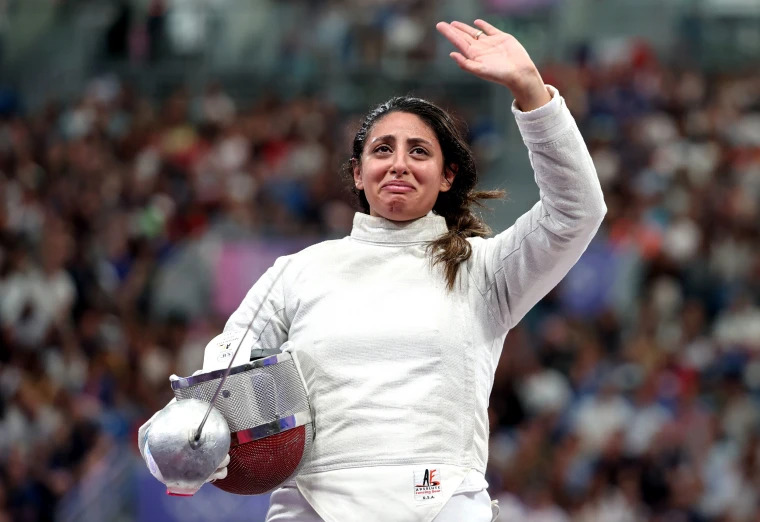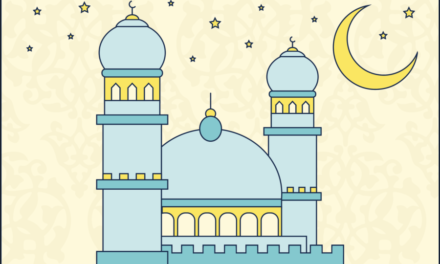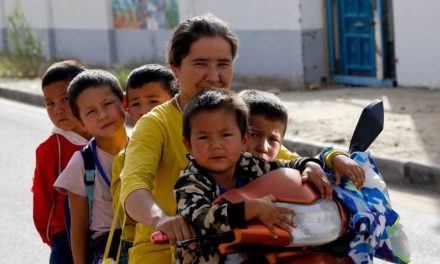Egyptian fencer Nada Hafez made headlines at the 2024 Paris Olympics by competing in the women’s saber event while seven months pregnant. At 26, Hafez reached the round of 16, achieving her best Olympic result after previously competing in Rio 2016 and Tokyo 2020, where she placed 36th and 29th, respectively.
Hafez’s remarkable journey began with a victory over American fencer Elizabeth Tartakovsky, ranked 10th in the world, marking a significant upset. However, her run ended when she was defeated by South Korea’s Jeon Hayoung. Despite the loss, Hafez expressed immense pride in her performance and unique circumstances.
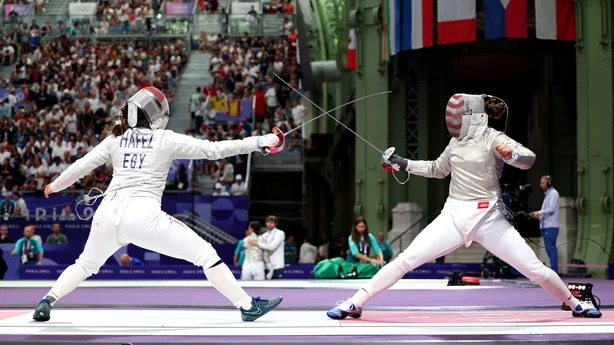
“What appears to you as two players on the podium, they were actually three! It was me, my competitor, & my yet-to-come to our world, little baby!” Hafez shared on Instagram. She acknowledged the challenges of balancing her athletic career with pregnancy, describing it as “nothing short of strenuous, however worth it.”
This Olympic experience was distinctly different for Hafez. She reflected, “This specific Olympics was different; three times Olympian but this time carrying a little Olympian one!” Her pride was evident as she declared, “I’m writing this post to say that pride fills my being for securing my place in the round of 16!”
Hafez’s announcement received widespread praise, with many applauding her for balancing pregnancy and sports. One comment read, “Balancing between pregnancy and pursuing your passion is never easy, so you should be super proud of yourself regardless of the outcome.” Another user humorously added, “Just amazing. But is it not cheating to fence two against one?”
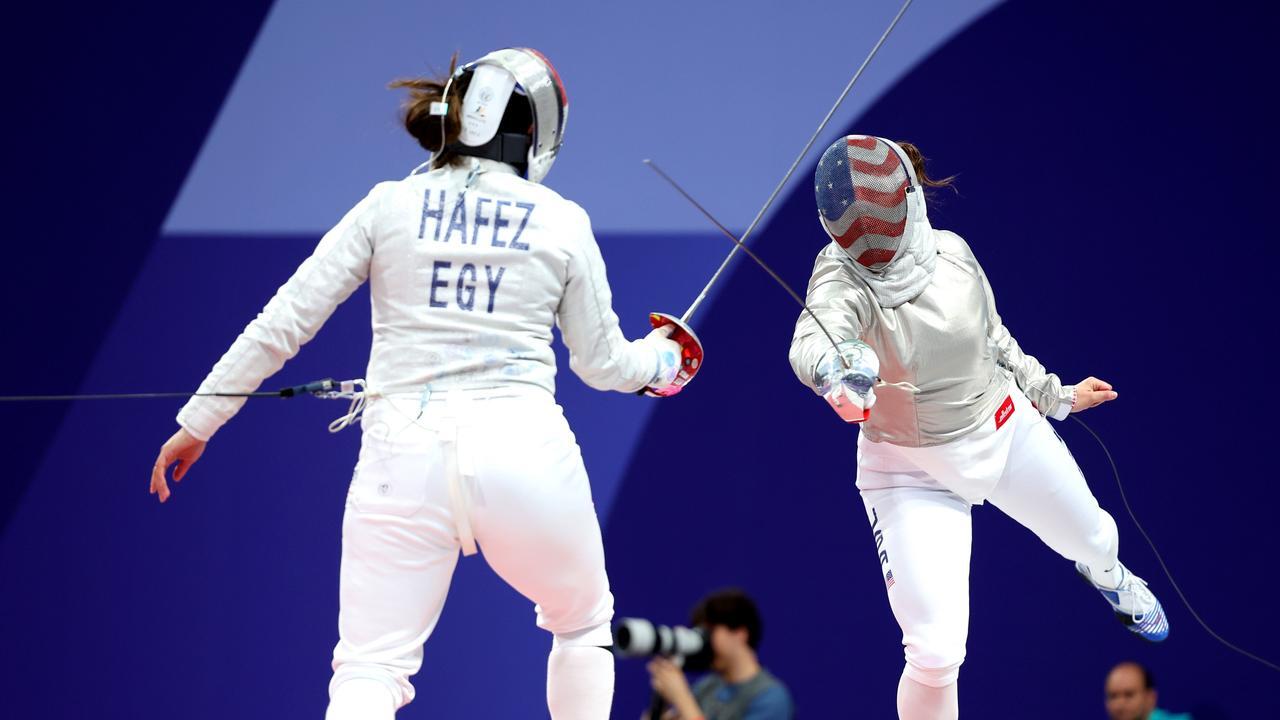
In addition to her achievements in fencing, Hafez is a former national gymnastics champion in Egypt and a clinical pathologist, having studied medicine at Cairo University. Her journey into fencing began serendipitously after she transitioned from gymnastics. “I felt like I wanted to try it after seeing my friend and once I did, I loved it,” she once said.
Egypt is participating in the 2024 Paris Olympics with a total of 164 athletes, including 48 women, competing across 22 sports. This marks the largest delegation in Egypt’s Olympic history, showcasing an ambitious effort to excel on the international stage.
The northeast African country is gearing up to bid for the 2036 Summer Olympics, aiming to host the event in the New Administrative Capital, a newly constructed city located 45 kilometers east of Cairo. The Egyptian government has endorsed the bid, with President Abdel Fattah al-Sisi supporting the initiative.
Should the bid be successful, Egypt would become the first African country to host the Olympic Games.
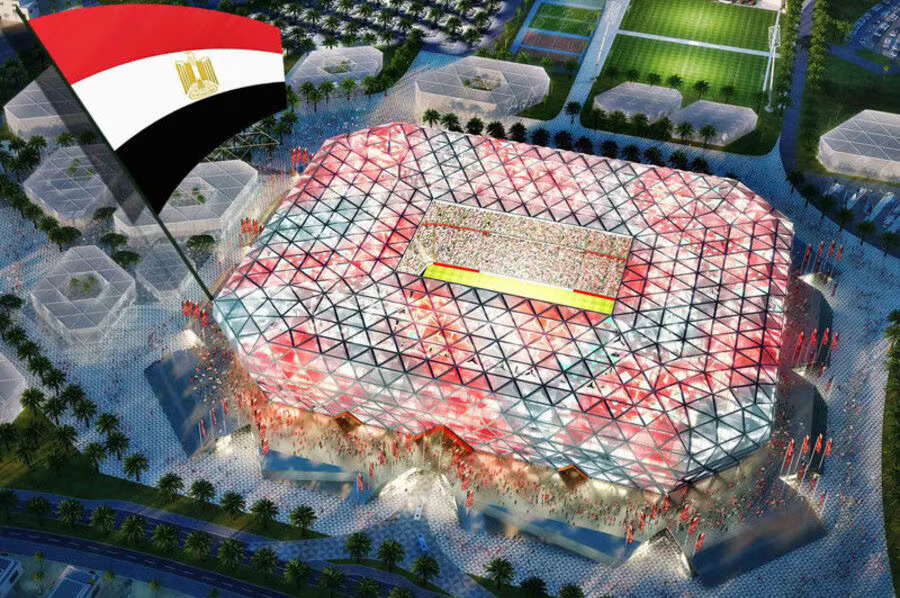
Egyptian Olympic officials assert that “it is time for Africa” to hold the event, noting that Africa is the only continent with a large population that has not yet hosted the Summer Olympics. The country is confident in its capability to manage the games, highlighting its recent achievements in organizing major sporting events such as the Africa Cup of Nations and the World Handball Championship.
Additionally, Egypt is collaborating with Greece and Saudi Arabia on a joint bid for the 2030 FIFA World Cup, working on this proposal concurrently with its Olympic bid for 2036.
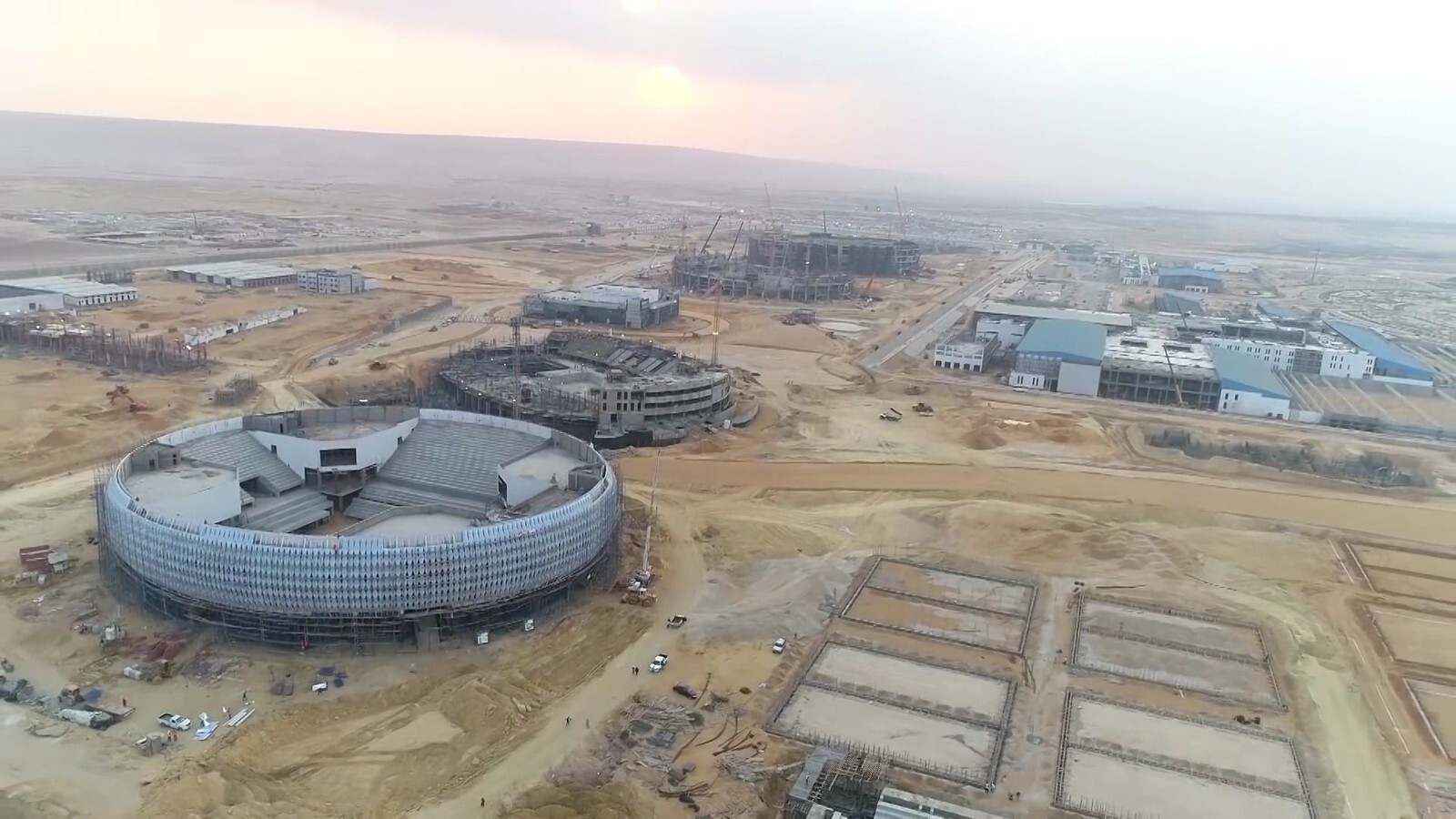
In preparation for the potential 2036 Olympics, Egypt is developing a 92-acre sports complex named the Egypt International Olympic City in the New Administrative Capital. This complex will include a 92,000-seat stadium, an Olympic-sized swimming pool, tennis courts, and various indoor facilities. The government has also prioritized the rapid construction of the International Olympic Village.
Nonetheless, Egypt will face strong competition from other nations vying to host the 2036 Olympics, including Germany, India, Mexico, Qatar, Turkey and Russia. The bidding process is still in its early phases, with a decision not anticipated until after the 2024 Paris Olympics.
By Kanza Eemaan
